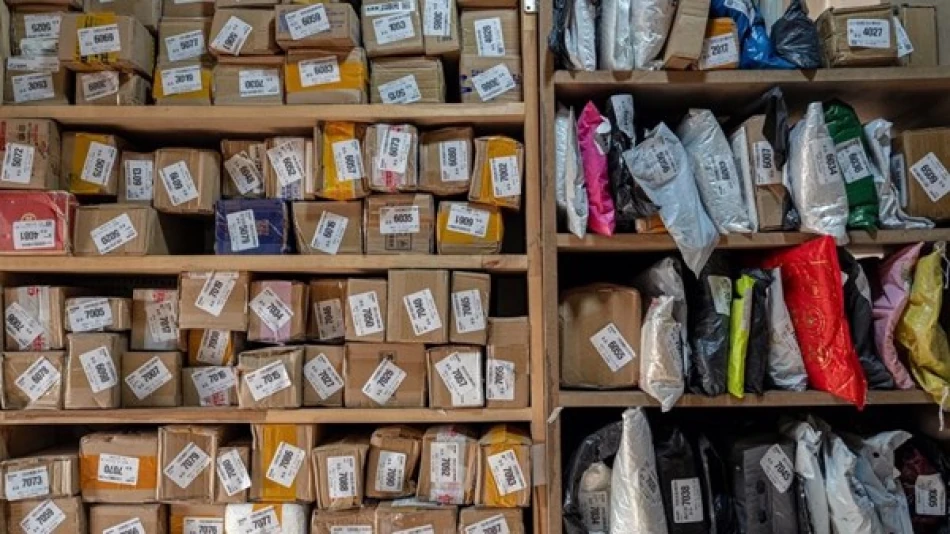
US Imposes Tariffs on Packages: Shipping Fees Hiked, Customers Brace for Impact
Trump's Tariff Crackdown on Small Packages Disrupts Global E-commerce as Countries Suspend US Mail Services
The United States has eliminated the long-standing tariff exemption for small packages entering the country, ending the so-called "de minimis" threshold that allowed shipments valued at $800 or less to enter duty-free. The move has triggered a cascade of postal service suspensions across 25 countries and raised immediate concerns about higher consumer prices and disrupted international trade flows.
The End of America's $800 Duty-Free Threshold
Under the new policy implemented Friday, packages previously exempt from tariffs will now face either standard country-specific duties or fixed fees ranging from $80 to $200 per item. Only personal items and gifts remain exempt from the new tariff structure.
The Trump administration justified the elimination by citing widespread abuse of the low-value shipment system for tariff avoidance and drug smuggling. Trade advisor Peter Navarro told reporters that closing this "loophole" would help stem the flow of "drugs and other dangerous and prohibited goods" while generating additional tariff revenue for the United States.
Global Postal Services React with Service Suspensions
The policy change has created immediate operational challenges for international postal systems. Twenty-five postal operators have suspended services to the United States, according to the UN's Universal Postal Union, including major services in France, Germany, Italy, India, Australia, and Japan.
The UK's Royal Mail, which initially suspended most US-bound packages, announced new specialized services Thursday to help customers navigate the changed landscape. This rapid adaptation suggests that international logistics providers are scrambling to develop workarounds for continued US market access.
Market Impact: E-commerce Giants Face New Cost Structure
The tariff change represents a significant shift for the global e-commerce ecosystem that has thrived on low-cost, small-package international shipping. Chinese platforms like Temu, Shein, and AliExpress built their US market penetration strategies around the $800 de minimis threshold, allowing them to offer American consumers competitively priced goods without tariff burdens.
For US consumers, the immediate impact will likely be higher prices on international purchases, particularly from Asian suppliers. The $80-200 fixed fee structure could make previously affordable items prohibitively expensive, potentially reshaping purchasing patterns toward domestic alternatives.
Strategic Trade Policy or Economic Disruption?
This move aligns with broader Trump administration trade policies aimed at protecting domestic manufacturing and generating government revenue through tariffs. However, the timing and execution have created significant friction in international commercial relationships.
The policy differs markedly from approaches taken by other major economies. The European Union maintains a €150 ($160) de minimis threshold, while countries like Singapore have embraced low thresholds to facilitate trade hub status. The US decision to eliminate its threshold entirely represents one of the most restrictive approaches among developed economies.
Long-term Implications for Cross-Border Commerce
The suspension of postal services by 25 countries indicates that international partners view the new policy as operationally burdensome rather than a minor administrative adjustment. This suggests potential lasting changes to how small-scale international commerce operates between the US and its trading partners.
For investors and logistics companies, the policy creates both challenges and opportunities. While traditional e-commerce platforms may face margin pressure, domestic fulfillment services and US-based manufacturers could benefit from reduced international competition in the small-package segment.
Most Viewed News

 Layla Al Mansoori
Layla Al Mansoori






